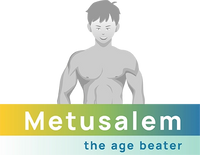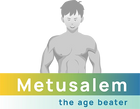Unlocking Longevity: Future Trends in Healthspan Research

Frequently Asked Questions
1. What is the difference between lifespan and healthspan?
2. How is personalised medicine impacting healthspan?
3. Why is gut health important for longevity?
4. What role do fermented foods play in promoting healthspan?
5. How can technology contribute to monitoring and improving healthspan?
The quest for a longer and healthier life has captivated the human imagination for centuries. With advancements in science and technology, the fields of healthspan and lifespan research are presently undergoing transformative changes that promise to enhance our understanding of what it means to live well and age gracefully. As we move forward, let’s delve into the innovative trends that are shaping the future of health and longevity. This exploration includes a critical focus on emerging supplements, lifestyle modifications, and the importance of a gut health booster.
The Shift from Lifespan to Healthspan
Traditionally, research has emphasised lifespan, the total number of years one lives. However, the modern approach focuses more on healthspan—the period of life spent in good health, without chronic diseases. This shift highlights the need to not merely extend life but to improve the quality of those additional years. Researchers and businesses alike are seeking ways to help individuals live longer, healthier lives, which brings about several exciting trends.
Personalised Medicine
As technology becomes increasingly sophisticated, the trend toward personalised medicine is gaining momentum. With insights gained from genetic testing and biomarkers, healthcare professionals can tailor interventions that suit individual health profiles. Personalised diets, exercise plans, and even supplements such as potent gut health boosters are being curated to meet specific needs, thus optimising the healthspan for each person.
Advancements in Nutraceuticals
The nutraceutical industry is witnessing rapid innovation, focusing on high-quality supplements developed to target ageing. These products often contain a blend of vitamins, minerals, and plant-derived compounds thought to promote cellular health and longevity. Among the burgeoning trends, gut health boosters stand out due to their role in enhancing digestive health which, in turn, is linked to systemic well-being and longevity. By optimising gut microbiota, people may experience improved immune function, reduced inflammation, and enhanced mental health—factors integral to maintaining a long healthspan.
The Role of Gut Health in Ageing
The link between gut health and overall wellness is increasingly recognised in longevity research. The gut microbiome, a complex community of microorganisms residing in our digestive system, plays a crucial role in various bodily functions, including metabolism and immune response. Scientific studies suggest that a healthy gut biome is associated with lower risks of age-related diseases.
Microbiome Modulation Strategies
Future trends in gut health research may centre on ways to effectively modulate the gut microbiome to promote healthspan. Strategies could include the use of prebiotics, probiotics, and synbiotics, which are pivotal in providing the necessary nutrients and beneficial bacteria. Incorporating a gut health booster into one's daily regimen offers the potential to enrich the gut microbiome, which may help stave off cognitive decline and other age-associated ailments.
Emphasis on Fermented Foods
Fermented foods are increasingly being viewed as a vital aspect of a longevity-focused diet. Items like kimchi, sauerkraut, kefir, and yogurt are celebrated for their ability to enhance gut health. In addition to supporting digestion, they are rich in probiotics, which can act as a potent gut health booster. Research indicates regular consumption of these foods can lead to improved gut microbiota diversity, contributing to increased healthspan.
The Intersection of Technology and Healthspan
Wearable technology and mobile applications are changing the landscape of how we monitor and manage our health. From heart rate monitors to sleep trackers, everyday consumers have unprecedented access to health data. As this technology advances, it is now easier than ever to identify behaviours and patterns that may impact longevity.
Smart Devices for Health Monitoring
Smart devices not only offer insights into physical health but also mental well-being. The future of healthspan research will likely include the integration of health monitoring with supplemented data on nutrition and lifestyle choices—ensuring users can adjust their habits effectively. For instance, by tracking digestion and the effects of a gut health booster, individuals can learn how certain foods affect their overall health and optimise their diets accordingly.
Telehealth and Remote Consultations
Telehealth technologies are making healthcare more accessible than ever before. Remote consultations allow individuals to receive personalised advice regardless of their location. This increases the likelihood of early detection and intervention in age-related conditions, thereby boosting overall healthspan. Experts can recommend tailored supplementation strategies, focusing on the gut, to improve health outcomes as part of an integrated approach to longevity.
Community and Social Engagement
An often overlooked aspect of healthspan is the role of community interaction and social engagement in promoting longevity. A supportive social structure can enhance emotional resilience, which is increasingly recognised as vital to maintaining health as we age. Future endeavours in healthspan research will likely emphasise the mental health benefits of community ties and shared activities.
Social Interventions in Longevity
Research indicates that social interactions can stave off feelings of loneliness and isolation, both of which are detrimental to health. Programs aimed at fostering community connections, whether through local initiatives or online platforms, are gaining traction. By engaging in health-promoting activities within a community, older adults can enhance their wellbeing, thereby potentially extending their healthspan.
Encouraging Active Lifestyles
Physical activity plays a pivotal role in maintaining health throughout life. Communities that promote active lifestyles foster environments conducive to regular exercise. Group classes, walking clubs, and outdoor activities not only provide physical benefits but also encourage social interaction, creating a two-fold approach to enhance healthspan.
Integrating Mental Health into Longevity Research
The intersection of mental health and physical health continues to be a prominent focus in lifespan and healthspan studies. As research uncovers the brain-gut connection, emerging evidence suggests that the state of one’s gut may significantly influence mental wellbeing.
The Gut-Brain Axis
The gut-brain axis—a bi-directional communication pathway between the gut and the brain—highlights how gut health directly impacts mental health. Developing a healthy gut with regular consumption of gut health boosters may not only improve digestive function but can also uplift mood and cognitive function. This avenue is ripe for further exploration, as researchers seek to deepen our understanding of how gut health influences mental resilience and, by extension, longevity.
Meditation and Mindfulness Practices
Alongside nutrition and community engagement, mindfulness practices such as meditation and yoga are gaining recognition for their ability to improve mental health. Such practices may reduce stress, enhance cognitive functions, and contribute to a positive outlook on life. Integrating these activities into a healthspan-focused lifestyle can amplify the benefits that dietary and social interventions afford us.
Pioneering Research and Future Directions
As we look to the future, pioneering research remains vital to advancing our understanding of healthspan. Cutting-edge studies will explore the biological mechanisms behind ageing and seek breakthroughs that may redefine our approach to longevity.
Epigenetics and Ageing
One of the most promising fields of science is epigenetics, which examines how gene expression changes in response to environmental factors. Understanding how lifestyle choices—including diet, exercise, and social connections—can influence gene behaviour may lead to innovations in delaying age-related decline. Epigenetic modifications offer exciting possibilities for the development of new therapies aimed at extending healthspan.
Regenerative Medicine
Regenerative medicine, including stem cell research, has the potential to revolutionise the way we treat age-related diseases. The ability to regenerate tissues and organs holds promise for reversing age-related degeneration. This field will likely be at the forefront of healthspan research, providing cutting-edge solutions to common ailments associated with ageing.
The Path Forward
As we conclude this exploration of future trends in healthspan and lifespan research, it's evident that the journey towards a longer, healthier life is becoming more nuanced and expansive. Personalised medicine, advancements in nutraceuticals, the importance of gut health, and the integration of technology present revolutionary opportunities that could transform how we approach ageing.
Fostering community connections and promoting mental health will be essential components of future strategies aimed at extending healthspan. As research continues to evolve, we will undoubtedly uncover new insights that empower individuals to take proactive measures for their longevity. By prioritising gut health as a crucial aspect of wellness, incorporating mental and social well-being into our lives, and remaining open to the innovations of tomorrow, we can unlock the potential of a vibrant and extended healthspan.
The quest for a longer and healthier life is, after all, a journey—one that begins with informed choices today and a forward-thinking perspective on health and longevity. Embrace the future, and take charge of your health today!

